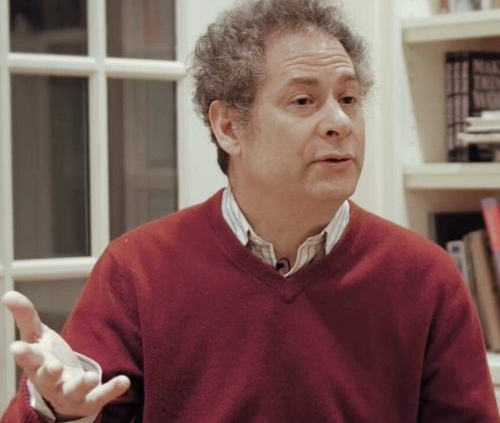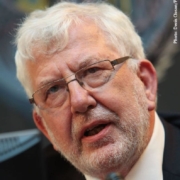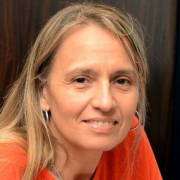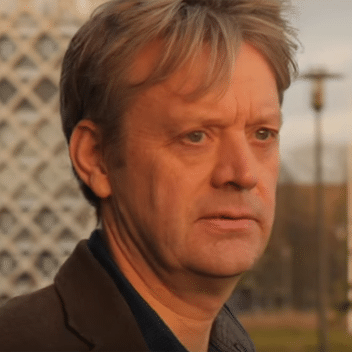Blaise Pascal, the 17th Century French mathematician and physicist, once wrote “All of humanity’s problems stem from man’s inability to sit quietly in a room alone.” As people and governments around the world are wondering whether or not to self-isolate to stop the spread of covid-19, Pascal’s adage has become more pertinent than ever.
As we grapple with our new world, I wanted to bring you a special episode of FreshEd. With me is Yaneer Bar-Yam, a physicist, systems scientist, and founding president of the New England Complex Systems Institute. Yaneer has spearheaded endcoronavirus.org, which aims to minimize the impact of Covid-19 by providing useful data and guidelines for action.
In our conversation, Yaneer discusses what different countries are doing in response to the virus and talks specifically about children and whether or not they should be in school.
Citation: Bar-Yam, Yaneer, interview with Will Brehm, FreshEd, 192, podcast audio, March 17, 2020. https://www.freshedpodcast.com/bar-yam/
Transcript, Translation and Resources:
Will Brehm 1:28
Yaneer Bar-Yam, welcome to FreshEd.
Yaneer Bar-Yam 1:31
Thank you for inviting me.
Will Brehm 1:32
So here we are, we’re sitting here Monday morning in East Coast America time and Monday afternoon in the UK, where I am sitting. Can you give us an update on the global spread of COVID-19?
Yaneer Bar-Yam 1:46
So, the main situation right now is that it is spreading rapidly in Europe and in the US. So, the … the called “Western” world and main countries are being very severely assaulted by the pandemic. In the, in the East, where it originated in China, the Chinese have been very, very effective at stopping the outbreak. From the time that they imposed lockdown in Wuhan and the area, it’s taken only a few weeks, less than a month really, for them to gain control of the outbreak. And now, there are almost no new cases at all. Similarly, in South Korea, where there was a dramatic super-spreader event, so thousands of people were infected from one individual through a community. That, they took dramatic action, locking down an area and doing massive testing. And were able to stop it and are now basically suppressing the last number of cases, and it’s going away. By contrast, in the West, despite … the … observing the effect of the actions in China, in South Korea, the initial reaction, particularly in Italy, and in other countries, was not very strong. And the outbreak spread rapidly. And now the real question is: what will people choose to do?
Will Brehm 3:36
And what are different countries choosing to do outside of China, and South Korea, and Japan, and maybe even Taiwan, and Hong Kong, where we’ve seen much more rapid state intervention to do lockdowns, to do massive testing, to encourage and implement social distancing? What’s happening in other countries say in Europe, for instance?
Yaneer Bar-Yam 4:04
Well, so I think there is … a … there seems to be an initial phase where people are trying to minimize the … the … extent to which it interferes with normal life. The idea being somehow that we will ignore it, and it will go away. There’s even a advocacy of a false scientific concept of herd immunity, which is basically allowing the disease to spread until all the population gets sick. And the reason why it’s false is that the disease is so severe, that the impact of such a … such a … you know, just allowing it to spread would result in massive numbers of … of … deaths, because the death rate is between two and four percent. The real … the best number is really four percent. And the … in addition, and what somehow people are not absorbing very well, is that the number of severe cases is extraordinarily high for a … for a … viral infection that we’re familiar. It’s … 20 percent of cases are severe, 10 percent require intensive care, for an extended period of time. And so, what we are seeing, what we saw in Italy, is that this attitude of – ‘Hey, if we don’t pay attention, maybe it’ll be okay’ – resulted in, you know, within a week … or, you know … basically in overloading the hospital system with cases in such a way that doctors are forced to do what’s called ‘battlefield triage’ where people are not being given medical care and are dying because of the neglect. And so, the death rate is extraordinarily high. Right now, it’s about six percent. That’s hard to figure out exactly what it will be because many cases take time to progress, right? So, the cases, even though you are treating the ones that are in the intensive care, a high percentage of them will result in death. And that takes time, weeks of time. So … so … we’re faced with this medical catastrophe. And when that happens, all of a sudden people, for some reason, at that moment realize that they can’t just ignore this. And action, it was taken in Italy to lock down first of all, the northern Lombardy region and the more extended area, but, it was extended to all of Italy because by then the disease had spread to all of Italy from where it had really started in the north. Other countries are also taking stronger actions, Spain, locked down all of Spain. Denmark has taken strong action to lock it down. And other countries are, let’s say, ramping up. The problem is that they’re being reactive, right? When you … when you… have an exponentially growing outbreak, the situation that you see now, is not what’s happening because there are many people that are infected, that are not yet showing symptoms. So, the way to think about it is that you have to act now, as if the situation is what it will be a week from now. And, roughly speaking, it’s about a factor of 10. So, there are 10 times as many cases. And in some cases, I think places including Italy, and surely in the United States now, testing is not adequate. So, if you’re not doing testing, it’s even worse because … you’re not even … you don’t even know the cases that you would detect with testing because of symptoms. So, you’re talking about not a factor of 10, but maybe up to as much as a factor of 100, in terms of the cases. And …. and to give you a perspective on how bad that is… and in China, they started with 800 cases at the moment they locked down. 800 cases. That’s what they … that’s what they … had confirmed. They ended up with 80,000 cases. 80,000 cases. So, it’s a factor of 100 between the number of cases that they knew, even though they were doing testing, and the eventual number of cases in the whole country. And if you remember … what how many, you know… what is the death rate? Four percent. 80,000 cases is what? It’s … it’s 4000 deaths, you’re talking about 4000 deaths. And what is it? Like, something like, 15,000 people that have been in intensive care, and there are still many people in intensive care in China, though that number is… is … unfortunately resolving often … for… for worse, right? People are dying, and some are recovering.
Will Brehm 9:37
Right. And what about in Italy then, where they didn’t necessarily do the lockdown at 800 cases? They did it later on.
Yaneer Bar-Yam 9:45
So, we can look for a moment at the number of cases that they have now. Or recently. Let me pull up that number.
Will Brehm 9:54
It’s about 24,700.
Yaneer Bar-Yam 9:58
Right … so … they locked down, you know, not now, but you know, kind of about… a… less than a week ago, right? But the point is that, let’s say they had about…. so, we look at the 10th and we have a number of cases in Italy. The totals in Italy were about 10,000.
Will Brehm 10:25
10,000 cases on March 10, in Italy,
Yaneer Bar-Yam 10:29
In Italy.
Will Brehm 10:30
And, so now we’re saying that it’s going to be a factor of 100, potentially.
Yaneer Bar-Yam 10:33
That’s right.
Will Brehm 10:34
Right. And four percent of those maybe would … be …. result in death. So, I mean, that’s … these are just enormous numbers to begin to comprehend.
Yaneer Bar-Yam 10:42
That’s right. And the problem is that … so Italy is … is … sort of now just going through this phase. And, again, I mean, that’s, you know, I’ve done a rough estimate, obviously, we hope it’ll be less than that, but … but … it is surely a huge number. Huge number. And the fact that people don’t understand that an exponential growth is something that you can’t delay reacting to is … is … really key. People have this static reactive view. You know, they think that things are gonna be the same tomorrow as they are today. Even though last week, it was very different, right? So today is really different in the world in terms of what’s going on than a week ago. And that difference is going in the same direction for next week. So, right now, we’re kind of waiting to see the effectiveness of the lockdown in Italy. And that’s really a key question. Did they do enough? You know, is it strong enough action? Are people following isolation? In some places they may be and we have to see how that plays out.
Will Brehm 11:55
Is there any evidence yet on how it’s actually playing out, the effectiveness of it?
Yaneer Bar-Yam 12:00
Not yet. Till today, we don’t have the results … in … are not in yet. And again, it takes, you know … there … there’s a four-day incubation period. So you’re not going to expect anything to happen in the first four days after you take an action because the people who are infected have already been infected … during the … before that, but, you are surely once you go through four days, you hope that you will begin to see the effect. So, from yesterday till today, yesterday Italy had 3497. So, 3500 new cases. Huge, right? Today, they reported still just 3600. Now, that’s still a lot, but it didn’t increase.
Will Brehm 12:57
Okay, so that might be a sign that we’re moving in the right direction.
Yaneer Bar-Yam 13:00
Right, but the problem is that one day is not enough because the reporting from day to day is not reliable. Remember the system is overloaded, way too many people are showing up in hospitals. And they don’t have time, even, to count the people, right? To assess what’s going on. So, I wouldn’t trust one number. But if we see for four days, you know, that it is consistently even stable, then we will know that the intervention is starting to have an effect.
Will Brehm 13:31
Let’s now compare … that … what is happening in Italy, to what’s happening in the UK, where you mentioned something earlier about this ‘herd immunity’… that … that’s somehow the strategy of the government. Talk me through what you expect or what you see currently happening in the UK, and what you, sort of, expect to happen in the UK, given the government strategy to combat the virus.
Yaneer Bar-Yam 13:57
So, the UK is basically a certain number of days behind Italy’s trajectory. So, all you have to do is say the number of days that it will take for UK to get to where Italy is today. And, so what we have is … that… so the countries that are close to Italy, right? So, France, Spain, and even Germany, are about a week behind. So, Germany is eight days behind. France is eight days behind. And Spain, roughly speaking … they’re … they’re nine days behind, they accelerated and that’s why they, kind of, locked down. UK is about a week and a half. Let me just say, it’s March 6th, compared to … so, March 6th compared to February 21st. So, February 21st, Italy is March 6th in the UK. So, it’s 1, 2, 3, 4, 5, 6, 7, 8 ,9, 10, 11, 12, 13, 14. So it’s about two weeks. So, two weeks behind. What that means is that … remember that Italy locked down almost a week ago, they locked down the region. It was, I think, Monday that they actually imposed the lockdown in the north and then Wednesday… in the … in the rest of the country. So, what we’re saying is that a week from today, UK is going to have such a severe situation with the hospitals that they’re, you know, belatedly going to react like Italy did. And that becomes increasingly likely as we go through that process. And, you know, the question that I’ve always been trying to ask people is: ‘why wait?’ The trajectory is like a wrecking ball, right? I mean, you know that it’s going to hit, why not act before it hits? The sooner you act … The problem is that people think, first of all, they think that if they act just a little bit, it’ll have enough effect to mitigate. And the problem is that when you have an exponential growth, a little reaction does nothing … it’s too big a thing. It’s like saying ‘okay, you know, I’m gonna put up this tissue in front of me when I’m going to be hit by this wrecking ball’.
Will Brehm 16:34
Yeah.
Yaneer Bar-Yam 16:34
You know: ‘hey, it’s not gonna hit me that hard. I’ll just put this tissue up here’. And then someone else says: ‘no, no. Okay. If you think that’s a serious … I’ll put up … this … this piece of wood or this something in front of me’. And it’s like, no, either you react all the way or you’re doing nothing.
Will Brehm 16:55
So, what would reaction look like? You know, I live in London and over the weekend I went out to buy some groceries and you pass a pub. And it’s completely filled with people drinking and, you know, as if it’s no other weekend, no different from before. You see people in the parks, and it’s filled … playing sports. And, you know, it’s just like any other weekend. Schools are still open, Monday morning. Some universities have closed, but most, when I say closed, they’ve … they’ve… moved classes online, but libraries are still open. Many staff members still have to go into the universities to work. So, what would the UK need to start doing to actually implement reforms that would stop this wrecking ball?
Yaneer Bar-Yam 17:42
So, the answer is you have to stop the contagion. People have to stop being close enough to other people. And that means at least a distance of six feet. Basically, you breathe out the virus, the people who are sick. And this is happening, you know, from early mild symptoms and maybe even before mild … and they’re basically … the air around them is full of virus. And it also falls to the ground, to surfaces, to tabletops. And everything they touch, because … they’re … they’re, you know, contaminating themselves with a virus. So, every surface that you touch that is touched by others has the virus on it. And so, you have to have very, very strong social distancing. And because it is such a severe disease, the right action has been … to … to do what was done in China and in South Korea, and now being done in Italy, and that is to just lock things down, which means everybody has to stay at home. And even that’s a problem because people within a family or roommates are gonna infect each other. So … the … the real challenge is to cut the network, and that involves people staying home. But it also involves … because there are essential services … you have to set up the, you know, the essentials for people. If people are … don’t have food being brought to them, they do have to go out once in a while to get groceries and medications, essentials. And so, there’s going to be an ongoing, lower level transmission, we have to cut that down as low as possible. And one of the key things is partitioning the space. So, in China, villages would have people standing guard, not letting people in because where you don’t have the disease, you don’t want to have it arrive. So, key to all this is to partition the space, to have essential services be done within the space, minimal crossover. And … and … so whatever the natural boundaries, whether they’re town boundaries, or whether they’re neighborhoods or apartment blocks, you want to make sure that there’s as little transmission as possible across. And then even within, you have to lock down. It turns out that if you take the extreme intervention, it’s actually the mildest intervention. And the reason is because it takes the shortest amount of time to get rid of the disease. If everybody self-isolates completely, then it actually only takes … you know … there’s a four day … I mean, as soon as you know that people … are … whether they’re sick or not. Right? So, if everybody self-isolates, there’s a two-week period that, you know, sort of three, four days where people often show symptoms, but it can take about two weeks and maybe a little bit longer. But if you isolated everybody for just two weeks, then everybody that was healthy could go about their business. And only the sick people would be isolated, and the disease would be done. So, there’s really just a two-week period to get rid of this disease as a transmission. And in fact, in China, it took, you know, only about three weeks or four weeks to completely control the disease. There are still people in the hospital that are being treated. But other people can start going about their business. So, the problem is that if you do a weaker intervention, it’s worse because many more people get sick. And it’s worse because it’s going to take a lot longer to stop the disease. And, of course, if you don’t do it strongly enough, then you’re never going to stop it. And that’s exactly what people are doing now. And the difference between completely stopping it and just sort of weakly stopping it is almost not at all. So, the strategy is to go all the way, do as much isolation as is absolutely possible. And that’s what a lockdown is about. You say, ‘hey, enough of this half-baked, or whatever other word you want to use, in … intervention’. If you go all the way, that’s gonna be the best reaction that you can make. And as you see where the disease is, because you monitor it, right? So, as you see that there is areas where you don’t have the disease, you then can ease up on your restrictions. And it gets confined to a smaller and smaller area, and then you can get rid of it.
Will Brehm 22:54
But, of course, it’s hard for people to act collectively like that.
Yaneer Bar-Yam 22:58
It’s not hard. It’s … this is the thing that people are just confused about, it just requires clarity. I mean … they’re … sure there are some people that are going to be law breakers in every context, right? But you know, people respond to the need and when they’re told that this is necessary for their health and for everyone’s health, people do it. You know, in Italy, also, the people were, you know, people were saying, ‘Hey, you know, as soon as they did the lockdown, the students were running to the train to get out of Italy’. Yeah. But, you know, once it happened, you know, people are singing in neighborhoods. And those are not necessarily the same people, but the society will respond to the need for stopping this outbreak. If people stand up and say, ‘we’ve got to do this. It’s the right way’. And … it’s … honestly, it’s the only way. It’s just a question of whether it happens earlier or later.
Will Brehm 23:51
Yeah, it has to happen, yeah. The question is, when and who implements it? I mean … sometimes it … I’ve talked to a lot of colleagues in London, who are professors themselves, you know, very learned people, very educated people. And yet, they were … I don’t know … if it was … if it was denial or they were just suspicious of all of the information that was being put out in the press, and they really didn’t see it any worse than the common flu.
Yaneer Bar-Yam 24:20
Well, part of the problem is that there’s this mixed information, there are people that are saying is like the common flu. And then there’s people that are, you know, and people are really used to the press being sensationalist, right? They spend a lot of their time and attention on attracting attention, right? That’s what they’re about. So, because there’s all this sensationalism when there’s a real problem, it’s hard to tell, but this is the real one. This is the big one. This is one that matters, and it matters … not you know … and the time matters. So, in the US, you’re asking about different reactions. In the US, we’re beginning to see the reactions happen. So, Massachusetts closed down all the bars yesterday, on Thursday. Local schools were closed today … yesterday. All the schools were shut down in Massachusetts, and there are very strong actions being taken in other places. LA is closing things down. And … and … this is where the dominoes begin to go, right? So hopefully everyone’s gonna do the right thing. They may not do enough the first round, it’s like, you know, Spain declared what they’re doing and it’s not clear to me that they’re doing enough. But the point is that once you go down that path, you really have to go all the way. And you have to do it, you know, with intent, and with understanding that it’s better to stop it than it is to pussyfoot around, right? It’s just … there’s … and so you really have to lockdown, and you have to refine the lockdown. So, in China, they first allowed people to go to supermarkets or whatever every three days. And then they stopped that also. They just did delivery. By then, the area of the lockdown had contracted. And so, they could do this. You know, because … the … and one of the things is going door to door and checking for fever. You don’t want people who are sick at home, you don’t want them to infect other people. So, you have to detect cases. So massive testing really matters. And that’s what was done in in South Korea, because the more you know, the less you have to lockdown everyone, right? It’s very straightforward. If I knew everybody that was sick, then I would just quarantine them. If I don’t know everyone is sick, then I basically have to treat everyone as. So, where there’s active transmission, you assume that everyone is sick, because you don’t know, they’re not showing symptoms yet. And they’re going to be contagious, either the moment they show symptoms or maybe a day earlier or maybe earlier, we don’t know. So, what you do is, you go all out, you shut it down, and then you can relax the restrictions, but it takes a couple of weeks. So, there’s a natural timeline of how you do the outbreak response. And we saw it really well done in China. China, early on, did what everyone else is doing. They say ‘it’s nothing, we’ll ignore it. Don’t talk about it’. But then once they acted, they acted strongly, shut everything … they couldn’t do as much testing, right? Because the tests were limited, the technology was not available. So, they focused on isolating people. And that’s what we have to do. And the answer to ‘what to do?’ is ‘don’t wait for the government’. Do it yourself. Protect yourself, protect your family, tell your friends, ask them what they’re doing. If you act today, you will be safe and all you have to do is be safe for a week or two. When the government wakes up and says ‘Oh, by golly gee, I have to do something’ … so, so you know, if you started a week ago, it would be better, but all right, start today. No, you didn’t start today, start tomorrow. The sooner you start, the safer you’ll be, the safer your family will be, the safer your friends will be. And all you have to do is wait for a few days, and everybody else will be doing it too.
Will Brehm 28:14
So, let me ask a final question here. Since this is a podcast about education, I want to ask a little bit about children. I want to know, you know, what tips do you have for families who are self-isolating with children, who are now not going to school, one? But, secondly, and maybe more broadly, how is this virus affecting children, impacting children? What do we know about the virus thus far … like … in that respect?
Yaneer Bar-Yam 28:43
So, children, unless we’re talking about infants, children are generally … do not get severe disease. It doesn’t mean that some aren’t, right? I mean … there’s … still you know … it’s a severe disease … and a small percentage … relative to other normal diseases there may be many deaths, right? We’re … just … you have to appreciate it. And remember that disease severity goes up starting from around 50. So, it’s not just elderly individuals, it’s people who are older than 50. And even people older than 40. The percentage of severe disease is increasing with age. But, it’s not just elderly. And, the point is that, if you’re talking about education, and one of these things that I really have never understood is this business about, ‘hey, the kids aren’t going to school. So, they’re not going to learn anything at all’, this stuff. When I was a kid, I stayed home for two weeks. I was in a school that I wasn’t happy with. And, my parents let me stay home for a couple of weeks, and I read the encyclopedia. And that was one of the best educations, for me, in my life. It was an incredible thing for me. And people can go online, they can learn all kinds of things. They can still interact with their friends through virtual … and remember that today, kids in virtual, they’re happy with that. I’m not saying that that’s good. I think kids should interact with each other, in person, under normal circumstances. But, it’s not a sacrifice that is unbearable. And they should be home not interacting with their friends physically but interacting with them virtually. And they have lots of fun playing games, but they can also do a lot of education. And I’m sure that your colleagues who are in education will figure out ways to interact with people … families, friends, offer all kinds of educational opportunities that people will benefit from. And, by doing that, it’s one example of a critical thing that people have to understand. Once we self-isolate, people have to help people. The communities have to get together, not physically, but it’s all about finding out who has needs and who has what to offer, and creating a network of mutual assistance, without contact, any contact has to be done with safety precautions, that are pretty severe. But the idea that people help people is really essential. And talking about the UK, there was this, you know … you take it for what it was … this … I would consider fairly bogus story about the problem that, if we isolate elderly individuals, and we’re only thinking about isolating the elderly, that somehow, they’re going to die because they’re not being taken care of. I think people have to realize that in these circumstances, we have to help each other. And it’s that help that is the most important process that we need to build up now. And part of that help is starting with education. It’s the education of others, that they need to act for themselves, for themselves, for their families, for their friends, by self-isolating, everybody, whether they’re young or old. Whatever is their circumstance, their responsibility today for themselves, and for everybody around them, is to self-isolate, and then to find out how they can help others, and let other people know how the other people can help them.
Will Brehm 32:06
Well, Yaneer Bar-Yam, thank you so much for joining FreshEd, stay safe, and thank you for all your work you’re doing on this virus.
Yaneer Bar-Yam 32:14
Take care. Bye bye.
Sitting quietly in a room alone: The fight against Covid-19









